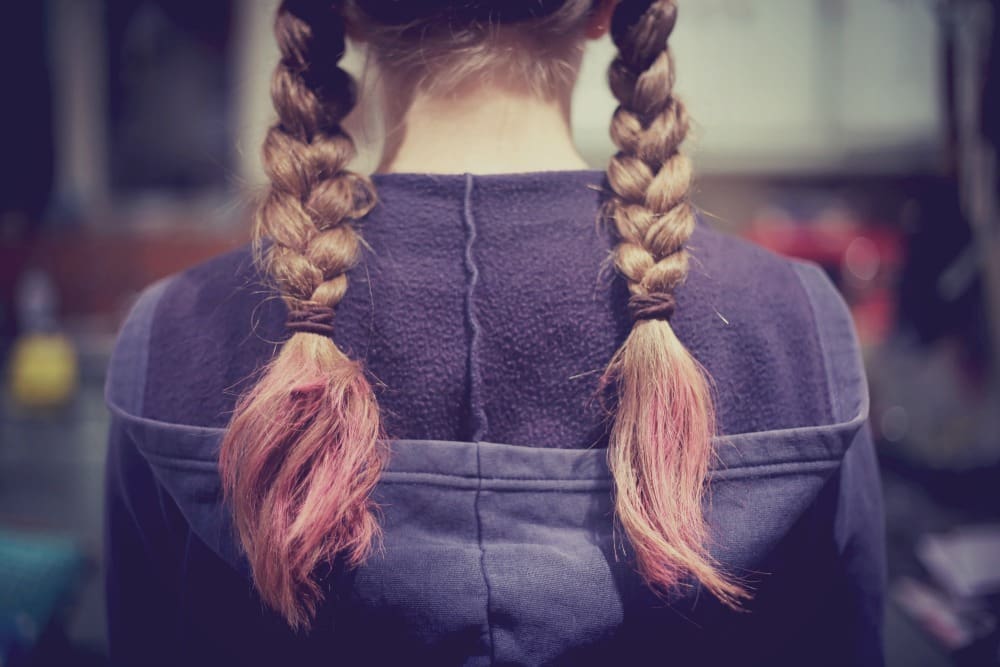Addiction is a hard topic to discuss. For both addicts and those close to them, it’s tough to explain the struggle to family members, friends, or employers. When talking to children about addiction, it can be impossible to find the words to help them understand. For children of addicts, siblings of addicts, or even grandchildren of addicts, the process can be difficult for them to understand. When explaining such a difficult topic, it’s important to take the child’s age into account, be honest with them, focus on support and communication, and foresee the issues that many children tend to develop while being close to addiction.
For children of addicts, siblings of addicts, or even grandchildren of addicts, the process can be difficult for them to understand. When explaining such a difficult topic, it’s important to take the child’s age into account, be honest with them, focus on support and communication, and foresee the issues that many children tend to develop while being close to addiction.
Talking to Children About Addiction
Taking Age into Account
Obviously there are certain topics that are difficult for children to understand and addiction is even difficult for adults to understand sometimes. When discussing a child’s parent, sibling, or family member struggling with addiction, it’s important to consider the child’s age and cognitive ability to understand such a complex issue. For younger children, the discussion about addiction might be best described as feeling sick. The older the child is the more details about addiction you can share, but be careful to not be too confusing. Your language and attitude is also important. Depending on how close the child is to addiction, they may already feel sad or angry about their absent family member – help them to understand their feelings and their family member’s feelings without encouraging a negative connotation.
Honesty
One of the most difficult aspects to explaining addiction to children is the importance of honesty. Those struggling with addiction themselves tend to feel embarrassed or ashamed of their substance abuse issues, even if they are recovered or in the process of recovery. However, even though it’s not necessary to share the inner details of every aspect of addiction, it is important to be as honest as possible. The child has to feel like they are able to trust someone in regards to the addict in their life. Addicts have to be able to take responsibility for their mistakes, especially to their children.
Children of alcoholics and children of addicts exhibit many of the same symptoms and may have trust issues with the entire subject of substance abuse in general. If the addict will be in treatment for a while and away from home, it’s important to tell them that and why. If the addict in their life is not yet seeking sobriety, it’s important to be honest about their status. It’s natural to want to protect them from certain information or certain pain that may come from knowledge pertaining to addiction – but helping them to understand addiction and being honest about the realities of addiction is much more beneficial to them.
Support and Communication
Experiencing addiction, having a family member struggle with addiction, and being a child of an addict are all difficult circumstances to be a part of. Addiction has many sides and affects each side differently. Don’t be afraid to ask for support when you’re given the task of explaining this difficult disease. Visit an Al-Anon meeting, speak with a counselor, or do some research online for the answers to any questions you have. You may be able to seek these answers with the child you’re discussing addiction with as well as a way to explain the addiction process to them. Show them that they aren’t alone in dealing with addiction and they have a support system.
Discussing hard topics with children is difficult and you can use
The Seven C’s
The National Association for Children of Alcoholics encourages that children know the seven C’s of addiction in order to help them with handling the addiction around them. Many children tend to blame themselves for many issues that their parents or loved ones face. The seven C’s help them understand it’s not their fault, they can’t fix it, and how important self-care is.
- I didn’t cause it
- I can’t cure it
- I can’t control it
- I can care for myself
- By communicating my feelings
- Making healthy choices
- And celebrating myself
These points are important for children because it points out the issues commonly experienced by children in this position. Guilt is common, helplessness is common, poor self-worth is common, and these seven C’s address those issues.
It’s hard for children of all ages to really understand why their loved one is addicted to a substance. With such a delicate topic and such a sensitive mind, explaining these things to a child is a tough burden to carry. Fortunately, children understand a lot more than we give them credit for. Adults tend to be very protective of children, which is why there’s a belief that some things should be kept from them. This can be true in some instances – but the saying, “honesty is the best policy,” applies to children a lot more than we are comfortable with. Release the stigma of addiction and involve children in the difficult aspects of this problem in an appropriate way. Remember to consider their age, be honest, show them support, encourage open communication, and offer skills to cope. The explanation is hard, but it’s important.
About the Author: Chelsy Ranard
Chelsy is a writer from Montana who is now living in Boise, Idaho. She graduated with her journalism degree from the University of Montana in 2012. She is a recovered addict who is passionate about addiction recovery advocacy. Follow Chelsy on Twitter.



Good read.
My husband and I have a 13 y.o. daughter and 8 y.o. son. They love their Dad and he loves us- in their eyes he’s the “fun” parent. He has multiple addictions- gambling, drugs, and drinking. He is active with the kids, but he starts drinking as soon as he gets off work. He will help with their basic needs, but as for taking kids to their practices, buying things for them or anything extra, I do it all because he’s checked out. He will sit in his chair all evening; drink, play games on the iPad or watch TV. He rarely goes to church with us, kids games, or family outings. They get disappointed when he backs out of things or chooses not to participate, but he doesn’t see it being an issue, because he is physically here. To me he’s a functional addict and he’s not setting a good example of what a father should look like. Im struggling how to explain to the kids when he is physically here but not emotionally- they see that he drinks a lot, but they don’t see the drugs or gambling.
Great article
I am raising my 5yr old grandson for past 4 yrs he doesn’t even remember his mom n my son his dad is also meth addicted, he is starting to show hurt from his dad’s addiction as of now I’ve only explained his dad has a sickness but I’m feeling need I should explain this more to my grandson, I have full custody and I do not allow his parents around him due to their addiction, could u refer me to some material to help explain addiction to him, he also has medical conditions from his mother using meth during pregnancy n also posts from abuse from mother, I want to always reassure him it isn’t his fault n he is loved from me.
How do you explain that a person didn’t cause it, can’t cure it and can’t control it? My daughter is 19-yrs old. Everyone tells her I did this to myself and I won’t stop. One other thing please, is it proven that addiction is hereditary or has something to do with genetics? Thank you so much and congratulations on your recovery!
This article is so important for parents and caretakers to read. I think being able to discuss addiction in an age appropriate manner will be best as we cannot approach the topic the same with an 8 year old compared to a 13 year old. But number 1, it is important to always reaffirm that it is never their fault. I think approaching it like any other medical condition or disease, like if someone is sick, they need help to get better. Addiction is a disease and the brain needs to heal with therapy and medication. Most kids understands being sick and needing a doctors help. Now if the kids are affected emotionally, get them help right away. The Betty Ford Center in California has one of the most amazing Children’s programs in the world!
Hello, great article. Can you recommend any books to help a 6 year old understand addiction. My sons father (who doesn’t live with us) is an addict and sometimes goes months without calling, promises he can’t keep, etc. My son is asking questions and I feel helpless.
I think these two resources are great for kids to help them understand addiction and I have read/shown my kids both and they feel empowered with the information. https://protectyoungminds.org/2015/07/09/this-is-your-brain-on-porn-4-videos-to-help-kids-reject-addiction/
https://www.amazon.com/Good-Pictures-Bad-Porn-Proofing-Todays/dp/0615927335
Can you please tell me the appropriate age that a child should know of his parents addiction. Really need to know as I have a mother and father with 4 children and both of the parents have addictions the oldest is currently 8 going in to nine. Regards Gloria
Gloria it’s always best to be honest with children. This doesn’t mean giving them all of the information you have, but giving them enough so that they can understand what is happening and so they can put what they are seeing in context. Explain what an addiction is – an illness. You can explain it in a way that they can understand – perhaps it’s when you know that something isn’t going to be a good idea, but you really want it anyway. Addiction is an illness that makes people want things that are bad for them, but they can’t stop wanting it. For children who don’t know what’s happening, the behaviours they see or the chaos they might see around them will only make them feel unsafe and frightened. Answer their questions honestly and explain what this means for them – who will be looking after them, that they are safe, who they can talk to etc. Give them whatever information they need to feel safe, but not so much that it scares them. The main thing children need to know is what it means for them, and that they will be okay because there are other people who are there for them.